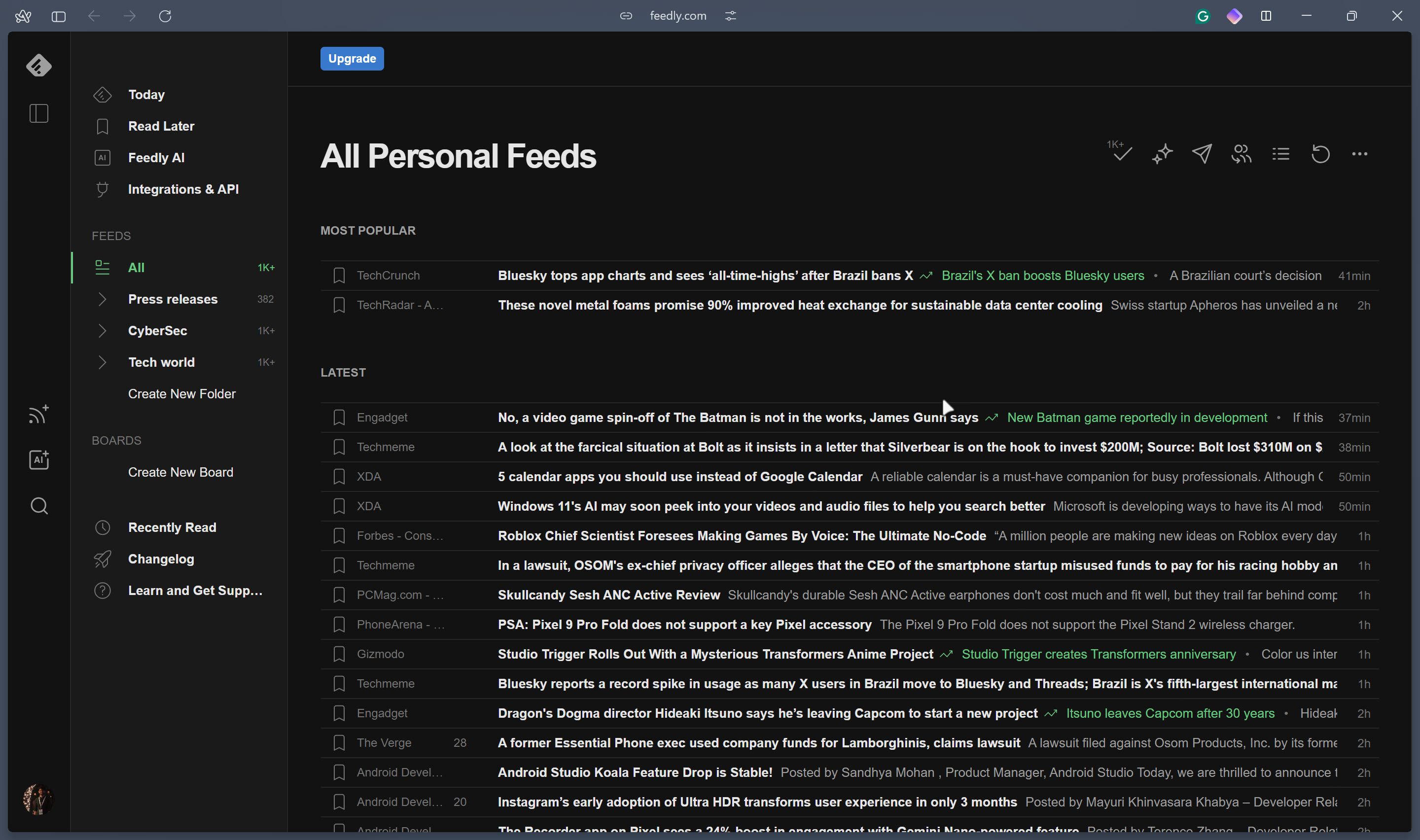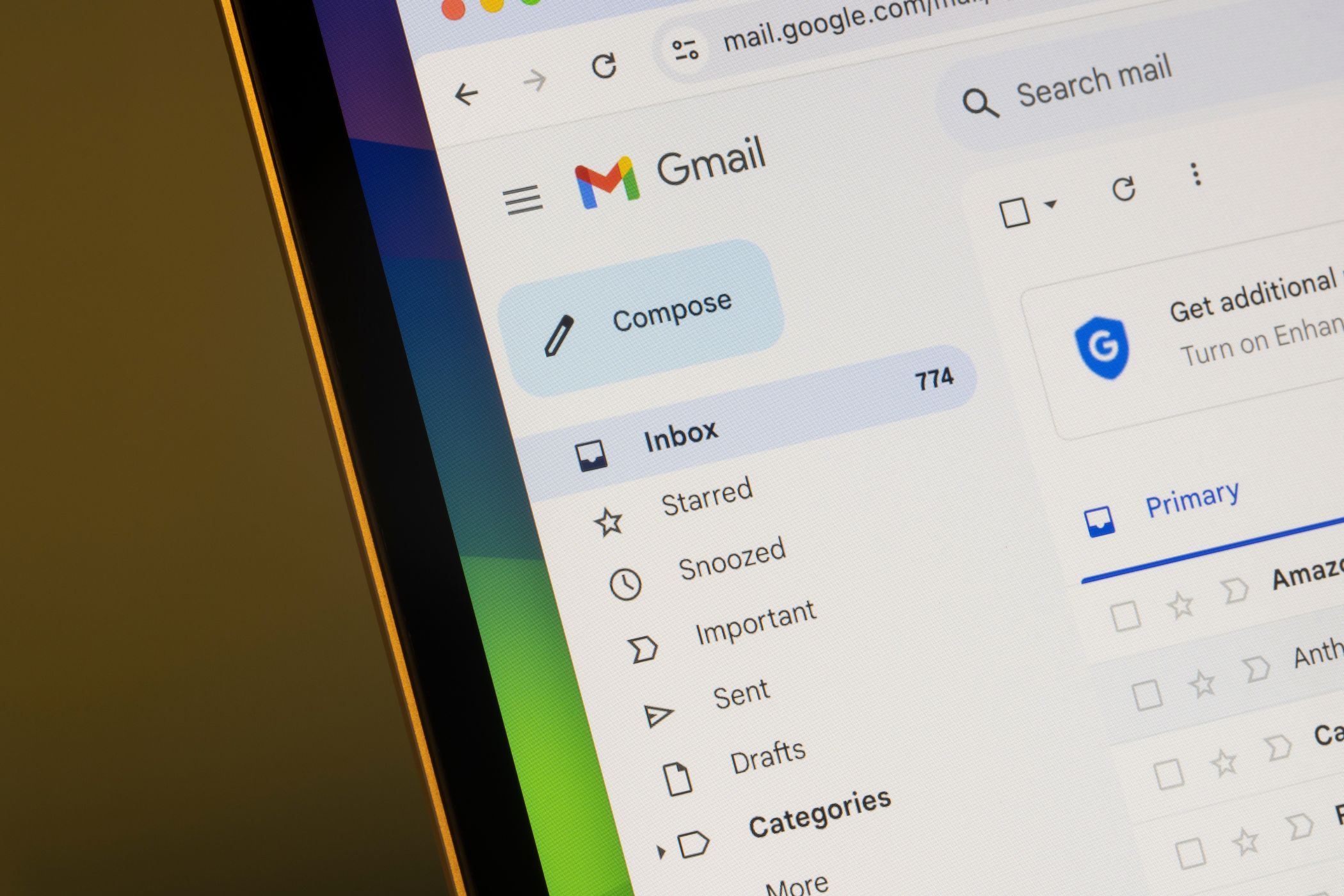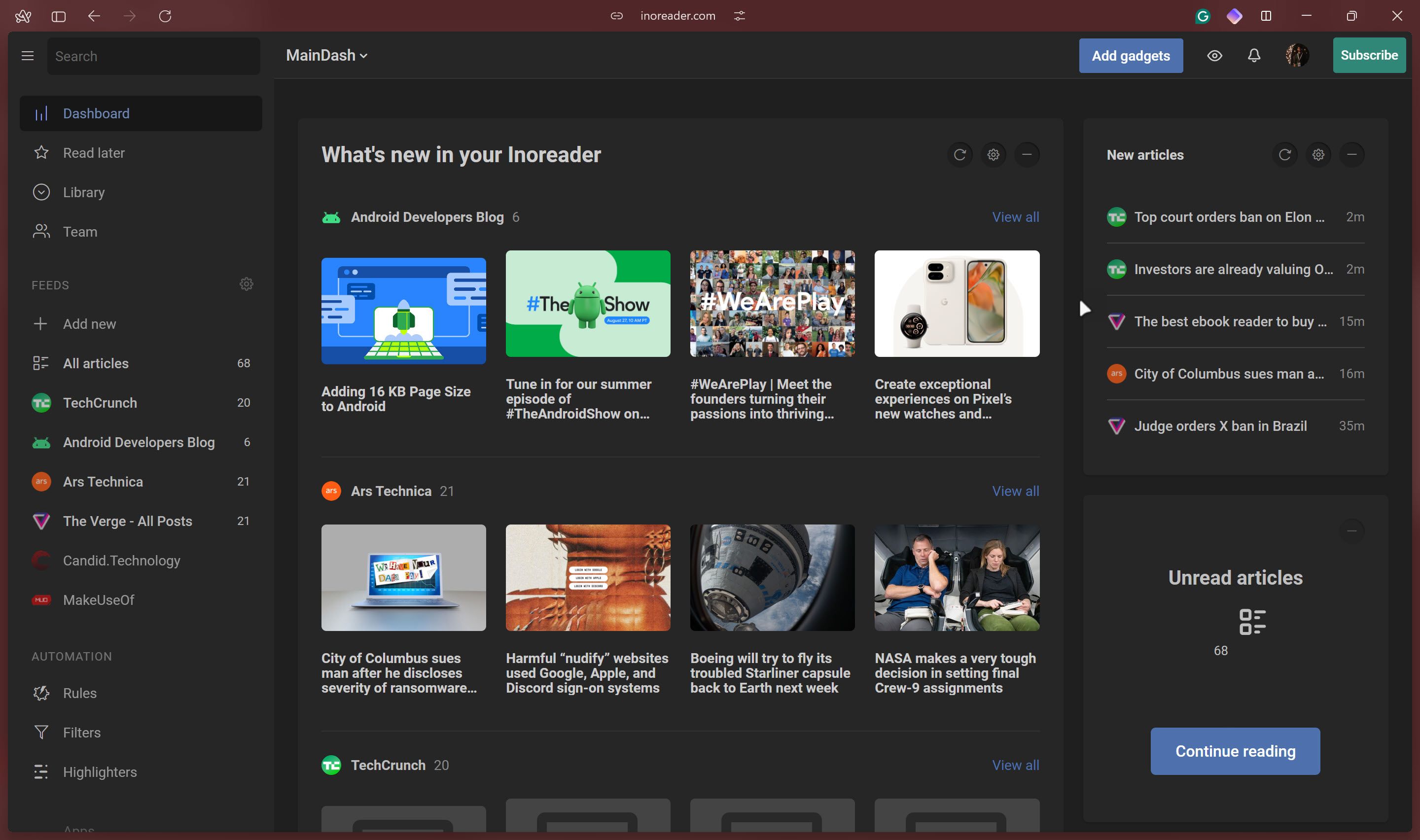Given how RSS has declined over the years, it looks like it will eventually join the list of obsolete internet tools. However, I’m not planning on giving it up anytime soon.
It’s still a while before RSS dies off completely. Until that happens, there are still plenty of reasons why I won’t stop using it.
1 Ease of Use
One of the best things about RSS is its ease of use. If you’re using an RSS feed reader like Feedly or Inoreader, all you have to do is look up feeds from your favorite news site or source and just add them to your list of feeds. If you need help picking one, here’s our list of the top free RSS readers to help you choose.
If you’re willing to play around a little with URLs, you can also get RSS feeds for articles with specific tags, categories, and even authors to make sure you only see the content you want. Granted, this requires some knowledge of how URLs are written and parsed in different backends like WordPress and so on, but once you get the hang of it, it’s really not that difficult.
There really isn’t anything else to RSS either. It’s a simple feed of content from your favorite sources that comes with the option of further filtering if you want. Even a complete newcomer to the concept can set up their personalized news feed in a matter of minutes, for free, and call it a day.
RSS feeds are also much easier to read compared to websites and blogs. Instead of having to deal with different color schemes, fonts, and text sizes, your RSS feed reader will present all your feeds in the same color, font, and font size—dramatically enhancing readability.
Most RSS readers allow you to change the font as well, so you can have an easier time reading your news. Additionally, since the feed doesn’t contain anything other than the article body and any in-line images, all you see is the article as written by the author without any ads or other distractions that might exist on the source site.
2 I Get All My Content in One Place
If you’ve ever looked up something on the internet, then you’ve experienced the information overload that it brings. There are thousands of articles, videos, news sources, and every other form of content imaginable covering anything you want across various sites on the internet. Unless you enjoy drowning in browser tabs, I don’t see how that’s an efficient way of collecting information.
RSS solves this problem by combining all your content feeds in one place. For example, my Feedly feeds show me the latest cybersecurity and tech news from every website I frequently read in a single click. I can further sort through the list using filters or search for something specific.
This saves you from having to visit multiple sites to cross-check information or just to look up another perspective. Not to mention that having all your content in one place is a massive time-saver and provides a much more cohesive reading experience than having to juggle between different sites and their interfaces.
There’s also a fair amount of customization on offer that helps make your reading experience consistent. In addition to the changes mentioned above, you can check out these novel RSS reading apps that can change the way you get news feeds and updates.
3 A Less Cluttered Inbox
Email newsletters are one of the biggest competitors to RSS feeds. Having a list of a publication’s best articles delivered straight to your inbox sounds like a good idea until you realize that you read dozens of them.
Before you know it, your inbox will be full of random newsletter emails you don’t even remember signing up for. Even if you want to legitimately subscribe to a newsletter, chances are you’ll miss it in the sea of spam our email accounts get. Some email providers like Gmail also sort different kinds of emails, including newsletters, into different folders, meaning you’ll have to do some digging before you find the newsletter you want.
RSS feeds take that hassle away by creating a separation between your inbox and the content you like to read. That way, you can find your emails without having to fight a sea of spam and get all the benefits of finding your content through an RSS feed as you usually would.
4 Updated Information When I Want It
If you go looking for something on the internet with search engines like Google, you’ll find it for sure—but there’s no guarantee that it’ll be the most updated information. One way you can counter this is by manually going to each website or information source and checking to see if there’s an update. Or you can just use RSS.
RSS feeds get updated with new articles or content the moment it becomes available. Additionally, you can always set up push notifications to be delivered to you every time something covering a specific topic you’re interested in pops up.
In a world where behind-the-scenes algorithms control everything we see and interact with on the internet, finding unbiased news or information in general can be difficult. Even something as simple as a Google search might bring up different results based on your geographical location and other factors. There’s a good chance that a good, unbiased report might get buried in the hundreds of sites Google ranks on its search page.
RSS feeds make it easier to find the news you want as you skip any search engines in the middle and go straight to the source. It’s important to consider that all RSS does is deliver a piece of content to you as it gets published on the source website, so there’s no scope for any algorithms interfering in between to control what you see. That’s exactly what you want when looking for news.
RSS readers like Inoreader also allow you to look up other users’ feeds or what feeds are trending on the platform so you can get a sense of what’s going on around the world.
There are obvious benefits to using RSS, but it does require the initial setup and some know-how of how things work before you can make the most out of it. That’s one of the biggest reasons it was never widely adopted by the masses, along with widespread social media adoption. However, for those who still want to use it, RSS feeds are still around for the foreseeable future.




